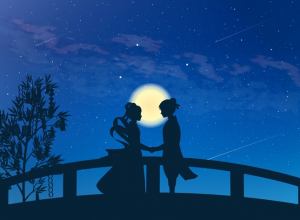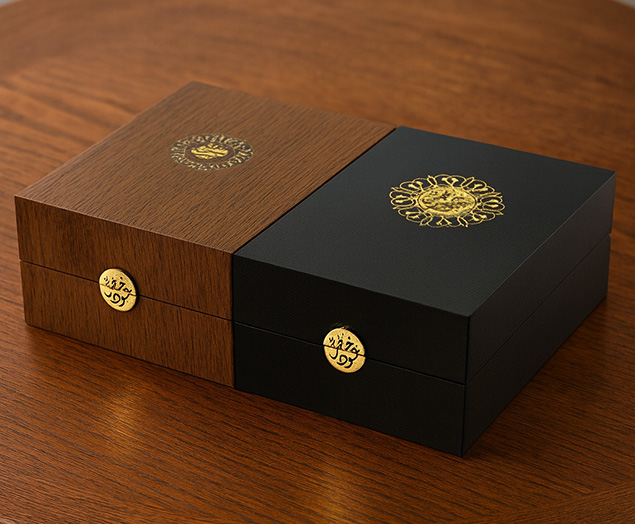Qixi Festival 2023: Date, History, Custom & How To Celebrate
The Qixi Festival on the seventh day of the seventh lunar month is the annual Chinese Valentine’s Day. As a traditional Chinese festival, Qixi has long been regarded as China’s “Valentine’s Day”. The beautiful legend of the Cowherd and the Weaver Girl and people’s longing for love have inspired generations of literati to eulogize it in their poems. It is said that every seventh day of the seventh lunar month, magpies on earth fly up to the Milky Way to build a bridge for the Cowherd and Weaver Girl to meet. Here’s everything you should know about the Chinese Qixi Festival!

Qixi Festival 2023 Date
The Qixi Festival will be observed on August 22 this year. It is a holiday celebrated on the seventh day of the seventh lunar month in the Chinese calendar.
What’s The History Of Qixi Festival?
Qixi was originally called Begging for Skills Festival. The festival originated in the Han Dynasty, and Ge Hong’s Miscellaneous Records of the Western Capital recorded “Han palace ladies often threaded needles through seven holes on the seventh day of the seventh month at the Kaijing Tower, and the custom was followed by all.” This is the earliest written record of begging for skills that we find in ancient literature. Pictures on Han Dynasty stone carvings of the Cowherd and Weaver Girl constellations
The earliest origins of “Qixi” come from ancient worship of nature. Judging from historical literature, at least 3,000 to 4,000 years ago, with the understanding of astronomy and the emergence of weaving technology, records of the Cowherd and Weaver Girl stars appeared. People’s worship of the stars went far beyond just the Cowherd and Weaver Girl – they believed there were seven stars in the east, west, south and north representing the directions, collectively called the 28 Mansions, of which the Big Dipper was the brightest for night navigation. The first star of the Big Dipper is called the Lead Star, also known as the Leader. Later, with the imperial examination system, the top scorer was called “Leader of the Examinees Nationwide”, and students called Qixi the “Lead Star Festival”, also known as “Air Books Festival”, retaining the earliest traces of Qixi originating from star worship.
Qixi also originated from ancient worship of time. “Seven” sounds the same as “period”, with both the month and day being “seven”, giving a sense of time. Ancient Chinese combined the sun, moon and the five planets of water, fire, wood, metal and earth, calling them “seven luminaries”. The number seven in folklore often signifies stages in time, with “seven sevens” as the final count in time calculations. In old Beijing, when holding Buddhist ceremonies for the deceased, they were considered done when they reached “seven sevens”. The seven luminaries gave us the seven-day week, still seen in the Japanese name. As “seven” sounds similar to “auspicious”, “seven sevens” implies double auspiciousness, making it an auspicious day. In Taiwan, the seventh month is called the “joyous and auspicious” month, since the character for joy in cursive looks like “seventy-seven” written twice, and so seventy-seven years old is also called “joyous longevity”.
Qixi is also a form of numerological worship – ancient Chinese folk belief considered the first day of the first, third, fifth, seventh, and ninth months, plus the doubly auspicious second and sixth months, these “seven nodes” as auspicious days. As seven is the number of beads on each rod of the abacus, it feels mysteriously aesthetic. “Seven” sounds the same as “wife”, so Qixi became largely associated with women.
Story Of The Cowherd And Weaver Girl
The first thing people think of with Qixi is the meeting of the Cowherd and Weaver Girl across the magpie bridge, equating Qixi to Chinese Valentine’s Day. In ancient times, Qixi was indeed closely related to the legend, but it was a comprehensive festival focused on women – this day women would visit close girlfriends, worship the Weaver Girl, compete in feminine arts, and pray for skills and marital bliss. Thus Qixi is also called “Daughters’ Festival”. Women had a joyous day of competitions and entertainment, with men tagging along to spectate, and pairing up was just a byproduct at the festivities.
The legend goes that the Weaver Girl was the granddaughter of the Queen Mother of the West, excellent at weaving beautiful colorful clouds with her nimble hands. The Cowherd was an orphan who was hardworking but poor, relying on his old cow for companionship.
One day, guided by the old cow, the Cowherd took the Weaver Girl’s clothes while she was bathing in a lake. The Weaver Girl also liked the Cowherd, so they got married. Thereafter they farmed and weaved, and had a son and daughter, living a happy life together.
When the Queen Mother found out, she was furious, and sent heavenly soldiers to bring the Weaver Girl back to the heavenly palace. With the old cow’s help, the Cowherd carried their children in a basket on a shoulder pole, and chased after them to the heavens. Seeing the Cowherd give chase, the Queen Mother drew a long river between them with her hairpin – the Milky Way.
The unrelenting waters of the Silver River separated the Cowherd and Weaver Girl on opposite banks, only able to gaze and weep at each other from afar. Seeing their grief, the Queen Mother took pity and allowed them to meet once every seven days. But the magpies relayed the message incorrectly, saying it was on the seventh day of the seventh month each year. So the Queen Mother punished the magpies by making them build a bridge for the Cowherd and Weaver Girl.
On the night of the seventh day of the seventh lunar month, looking up at the starry sky, people can see two bright stars on opposite sides of the Milky Way – the Cowherd Star and Weaver Girl Star.
The love story of the Cowherd and Weaver Girl merged into the Begging for Skills Festival, and young women believed it was true. Thus every seventh day of the seventh month when the Cowherd and Weaver Girl meet across the magpie bridge, girls would go under the moon and flowers, gaze up at the stars, look for the Cowherd Star and Weaver Girl Star on opposite sides of the Milky Way, hoping to see their annual meeting. They prayed that they too could be as skilled as the Weaver Girl, and find a perfect marriage, and over time this became the Qixi festival customs.
Qixi Festival Customs
Threading Needles to Beg for Skills
This was the earliest begging for skills custom, originating in the Han dynasty and passed down since. Miscellaneous Records of the Western Capital says: “Han palace ladies often threaded needles through seven holes on the seventh day of the seventh month at the Kaijing Tower, and the custom was followed by all.” Records of Seasonal Customs in Jingchu during the Southern Liang dynasty says: “On the seventh day of the seventh month, women in families thread seven-holed needles outdoors, some using gold, silver, jade or stone needles.”
Auspicious Spiders to Grant Skills
This was also an earlier begging for skills custom, originating approximately in the Northern and Southern Dynasties. Records of Seasonal Customs in Jingchu during the Southern Liang dynasty says: “On this night, melons and fruits are offered in the yard to beg for skills. If a happy spiderwebs the melons, it signifies the skills are granted.”
Needle Divination to Test Skills
This was a variation of the seventh-day needle-threading custom, originating from needle-threading yet different, prevalent in the Ming and Qing dynasties. Miscellaneous Records of the Imperial Capital in the Ming dynasty says: “On the seventh day of the seventh month at noon needles are thrown to divine skills. Women expose water under the sun, after a while, a film forms on the water, embroidery needles are then thrown at it and float, judging the shadow of the needles at the bottom of the water. If there are shapes of clouds, flowers, birds or beasts, or shoes and scissors, it signifies granted skills; if the shadows are thick as hammers, fine as silk, straight as candle wax, it indicates clumsiness.”
Milling Figurines
Milling figurines were folk toys for children during Qixi, small mud dolls, often shaped as girls holding lotus leaves in lotus leaf ponchos. Every seventh day of the seventh month, places in Kaifeng like Panting Street and Zhouxi City sold mud figurines.
Worshipping the Lead Star
Folklore said the seventh day of the seventh month was the Lead Star’s birthday. As the Lead Star governed literary matters, students wishing to succeed in the exams worshipped it, praying for blessings and exam success.
Eating Skill Fruits
Qixi skill-begging festival foods are notably the skill fruits. Also called “begging for skills fruits”, there are many varieties. The main ingredients are oil, flour, sugar and honey. The process is: melt white sugar into syrup, mix in flour and sesame seeds, roll flat and cut into rectangles, fold into shuttle shapes, fry in oil until golden.
What Is The Difference Between Valentine’s Day & Qixi Festival?
Valentine’s Day and Qixi Festival are both romantic holidays celebrated in different cultures and regions, but they have different origins, traditions, and dates.
Valentine’s Day
Valentine’s Day, also known as Saint Valentine’s Day, is a Western holiday that originated from early Christian and Roman traditions. It is celebrated on February 14th each year. The holiday is named after Saint Valentine, a Christian martyr who lived during the Roman Empire.
Traditionally, Valentine’s Day is a day to celebrate romantic love and affection between intimate partners. It is common for people to exchange gifts, cards, flowers, and chocolates as symbols of their love and appreciation for each other. In many Western countries, it is a day to express love to friends and family members as well.
Qixi Festival
Qixi Festival, also known as the Double Seventh Festival or Chinese Valentine’s Day, is a traditional Chinese festival celebrated on the seventh day of the seventh lunar month. The origins of the Qixi Festival can be traced back to a romantic folk story called “The Cowherd and the Weaver Girl.”
According to the legend, the Cowherd and the Weaver Girl were separated by the Milky Way and could only meet once a year on the seventh day of the seventh lunar month when magpies formed a bridge to reunite them. In China, this day has become a symbol of love and devotion between couples.
During the Qixi Festival, couples exchange gifts, go on romantic dates, and pray for happiness and blessings. It is a time to celebrate love and romance, similar to Valentine’s Day in the Western culture.
Both Valentine’s Day and Qixi Festival are occasions dedicated to celebrating love and affection between couples, but they have distinct cultural backgrounds and are observed on different dates. Valentine’s Day is a Western holiday celebrated on February 14th, while Qixi Festival is a Chinese festival observed on the seventh day of the seventh lunar month in the Chinese calendar.
How Do The Chinese Celebrate Qixi?
-
Exchanging Gifts: Like Valentine’s Day in Western culture, exchanging gifts is a common practice during Qixi. Couples often give each other gifts as a symbol of their love and affection. Luxury gift boxes packed with flowers, chocolates, jewelry, and other meaningful tokens of appreciation.
- Romantic Dates: On Qixi, couples often go on romantic dates, such as going out for dinner, watching a movie, or taking a walk in a beautiful park. It is a time for couples to spend quality time together and strengthen their relationship.
- Stargazing: A popular tradition during Qixi is to go outside and look at the stars. According to the legend of the Cowherd and the Weaver Girl, magpies form a bridge across the Milky Way on this day to reunite the two lovers. People believe that if they look up at the night sky, they can witness this celestial meeting, representing the love between the two mythical characters.
- Making Wishes: Traditionally, young girls would pray and make wishes on Qixi night for skillful hands in weaving, hoping to improve their sewing and embroidery abilities. They also pray for good fortune and happiness in love.
- Worshiping the Weaving Maid: In some regions, there are customs of making offerings and burning incense to worship the Weaving Maid, Zhinü, who is the key figure in the romantic legend associated with Qixi.
- Writing and Floating Wishes: In recent years, another popular activity during Qixi is writing wishes on colorful paper and floating them on water. This practice symbolizes the hopeful and flowing nature of love.
- Attending Festivals and Events: Many cities and communities in China organize various events and festivals to celebrate Qixi. These events may include performances, concerts, and other activities dedicated to love and romance.


Top 10 Creative Cosmetic Packaging Design Ideas & illustrations 2023 | Luxury-Paper-Box.Com

30 Honey Packaging Designs That Capture Nature’s Sweetness










